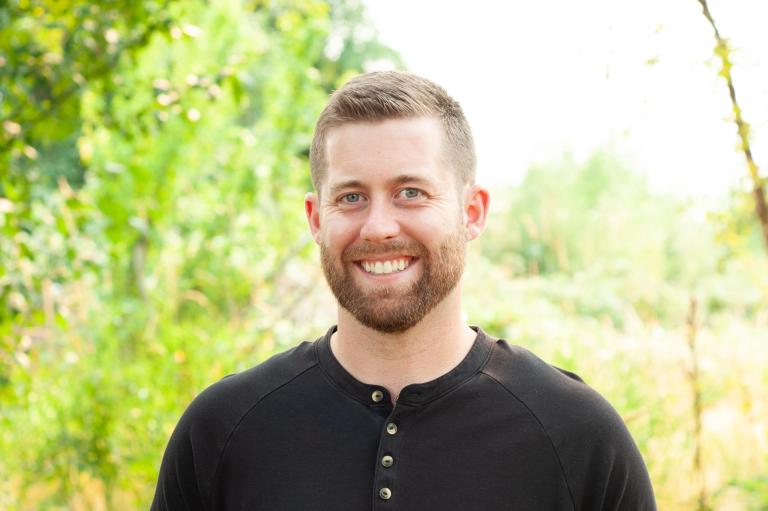
In a recent podcast, I shared that I believe much of our American culture, and certainly American religious culture, is dependent on our perpetual disembodiment. That is to say, it is based on our continued inability to listen to our bodies, to the bodies of others, and to recognize the inherent dignity within and all around us.
We have another word for this, perhaps one that resonates more with your experience: disconnection.
Living in a culture rooted in individualism, otherizing has become lifeblood for many of us – we have been taught to debate, dismiss, and disregard others so we can feel like we stand for something.
And because we haven’t learned and practiced the art of listening, we have become disconnected: from our neighbors, from those different from us, from our cities, from our country, from our planet, and from ourselves.
Or maybe it’s the other way around. Perhaps it’s because we’ve become disconnected from ourselves and those around us that we no longer know how to listen. We’ve become so focused on our own identity-building and in-group construction that we’ve abandoned the basic skill of listening – of paying attention to what is going on within us and outside of us.
Either way, we need to learn to listen again.
The 4 Step Cycle Toward Connection and Transformation
This isn’t the most popular call-to-action. In a world of doing, of deeply felt injustices, of protests and of side-taking, the idea of listening to others from a place of compassion is a pretty hard sell.
For everyone.
For those experiencing oppression and who have had their voices shut out, why would they want to listen to those who profit from their pain OR trust that their story will be heard this time? And for folks with numerous forms of privilege, the status quo has worked rather well. Why start listening now?
And yet, it is the most important skill we can relearn.
Listening is where meaningful change, counter to all social, cultural, and political narratives, occurs.
No protest in the world can be effective in creating transformation if listening to people’s stories isn’t involved – including the stories of those in power. No friendship can be healthy if listening to each other’s lives isn’t affirmed. No church-led social justice ministry can create real, transformative change if the voices of those experiencing oppression aren’t being centered. Starting up a typical soup kitchen ain’t going to cut it.
1. Listen
When we start with listening, we open the door to truly seeing what is needed in the moment – not from our desires, but from the felt needs and desires of others. Whether it’s at a political rally, or at home sitting in meditation, listening is our doorway to connection and change-making. It is the act of placing ourselves in a headspace, heartspace, and physical space from which we can engage the world – this first act of listening is all about our posture.
Question to walk with: How are you showing up in the world? How are you listening for the felt needs and desires of others? How are you doing this for yourself?
2. Recognize
When we place ourselves in this space of listening, we can begin to recognize the deeper narrative and message of the story: the pain, experiences of injustice, love, hope, or just a rumbling of the tummy. This is where we become “in relationship” – in relationship with each other, with the world, and even in relationship with ourselves, our emotions, feelings, and dreams. And if we’re in relationship, meaningful things can begin to happen. We can begin to see Truth and differentiate it from the stories we’ve been told.
Question to walk with: How are you increasing your capacity to recognize the pains and dreams of the world? What are you doing – daily – to see them and sit with them?
3. Listen
The third step, when we listen deeper, is all about invitation. How are you being called to respond to this moment? What is the invitation in the person’s story? In what way can you show up meaningfully right here, right now?
A couple examples:
- You’re with a friend at lunch and you’re really listening to her tell a story about her dad. He’s fading – fast. You recognize that although she says she’s fine (“I’m fine!”), she’s clearly mourning the coming loss. She’s barely eating, she’s a bit all over the place, maybe she’s even tearing up. In your listening to her story, to her presence, you feel the invitation to ask her to lunch again next week. You can’t save her dad or protect her from the pain of the experience, but you can keep creating space for her to share and for you to listen.
- You’re in the midst of a political argument between two family members. Again. This happens literally every time you’re all together. But this time, you don’t want to feed the argument – you want to see if it can be meaningful in some way. In your listening to the two sides, you hear and recognize a shared emotion: anger. Certainly it’s directed in opposing directions, but it’s anger nonetheless. Instead of letting the sides double down in their positions, you feel the invitation to make it personal. “Steve, what in you is angry about this? Can you share how you are experiencing this?” In this way, although you have not solved the problem, you’ve opened a new lens for the conversation: one that is personal, relational, relatable, and most importantly, experience-based, not argument-based. And there is more to do.
- In the wake of the Roe v. Wade reversal, you might feel lost. What can we do to support our neighbors in states across the country who have just had their rights taken from them? There are protests scheduled and you go – but it feels incomplete. Instead of stewing in the hugeness of the emergency, you might connect with a local organizer, join a group working hands-on in states without access to abortion care, or actually travel to those states, with an invitation from a local group, to help out. The point is: you place yourself in a position to listen deeper in a relational way.
Question to walk with: What is the invitation for you in this moment?
4. Participate
The fourth step comes pretty naturally from the third. If we’re open to hearing an invitation, the response becomes a lot easier. We can naturally begin to participate with the person, with the world, or with ourselves from a relational, personal, and meaningful space. We can ask a question, we can offer up our gifts, we can show our support personally. In this way, we have utterly shifted the way we engage from being transactional (you tell me things, I tell you things) to transformational (I listen to you, I participate with you).
If we can begin to walk through the world with these four steps guiding us, we will have a much happier Earth. There will still be injustice, still greed, still anger, but we will be better prepared to engage with it meaningfully, rather than just continue our yelling, our otherizing, and our isolating.
Try my free Wisdom for the Moment generator to receive a short poem, phrase, or teaching from some of our greatest elders, mystics, and prophets.
Pick up my free resource Wisdom Teachers + Body Practices to Guide Us here.
Get my Quick Guide to Engaging a Contemplative and Embodied Spirituality.

















